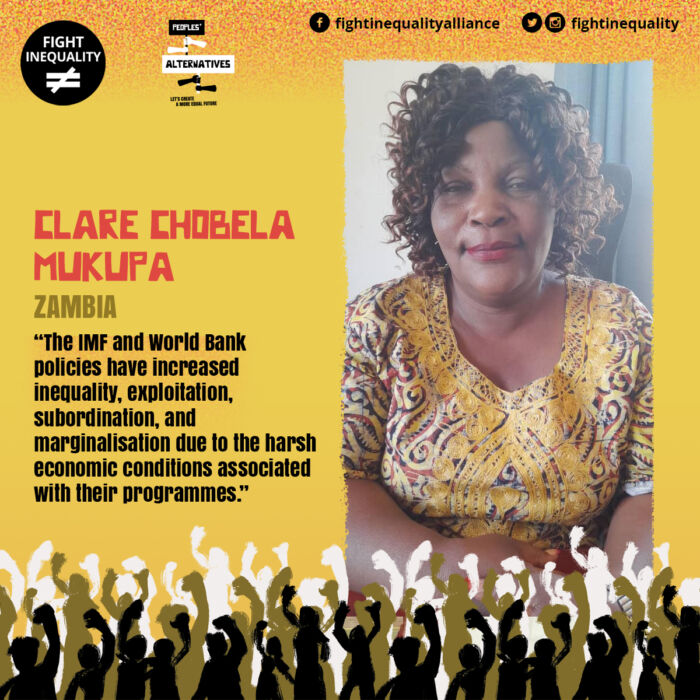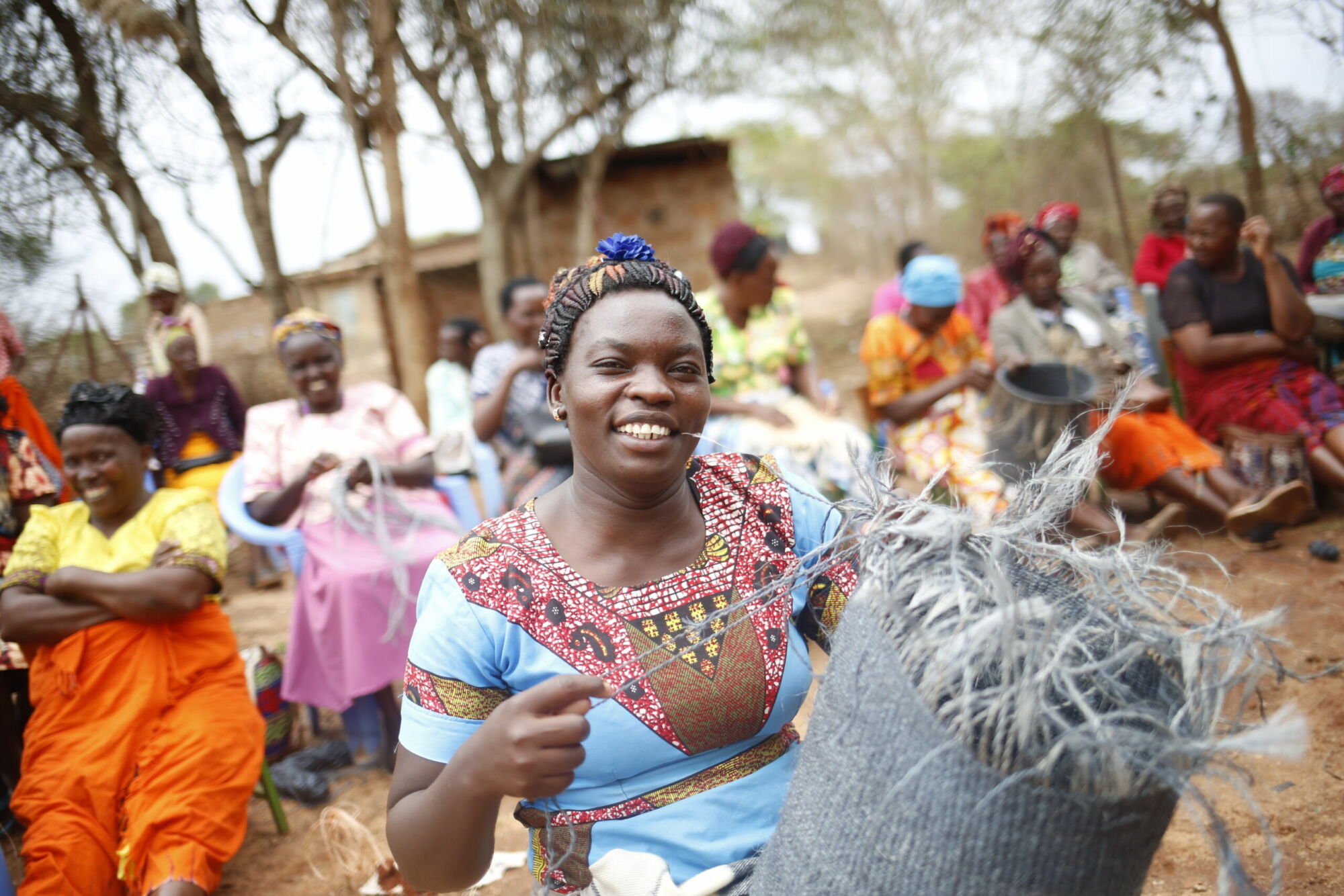 The 2023 Annual Meetings of the International Monetary Fund (IMF) and World Bank Group (WBG) is being held in Marrakech, Morocco from October 9-15. These meetings present a strategic opportunity to build a large-scale movement to fight inequality and promote sustainable economic development.
The 2023 Annual Meetings of the International Monetary Fund (IMF) and World Bank Group (WBG) is being held in Marrakech, Morocco from October 9-15. These meetings present a strategic opportunity to build a large-scale movement to fight inequality and promote sustainable economic development.
Women farmers in rural Zambia are disproportionately affected by the country’s debt to the World Bank and IMF. This debt burden has led to cuts in public spending on essential services, such as healthcare, education, and agricultural support programs. In addition, the World Bank and IMF have imposed austerity measures on Zambia, which have led to increased taxes on agricultural products, lower prices for produce and reduced subsidies for inputs. As a result of these factors, women farmers in rural Zambia are more likely to live in poverty and experience food insecurity than men. They are also more likely to be illiterate and have limited access to healthcare and education.
In her submission to the Marrakech World Bank/IMF Annual Meeting, Clare Mukupa, Coordinator for the Mumbwa Women District Association, calls for the World Bank and IMF to cancel Zambia’s debt, stop imposing harmful austerity measures, and support alternative development policies that are focused on reducing poverty and inequality. She also calls for them to promote sustainable economic development, support rural development and agriculture, and increase funding for social programmes such as healthcare and education while supporting policies that promote gender equality and women’s economic empowerment.
Mukupa and the Mumbwa District Women Association have been partners with We Effect in working to support women farmers in rural Zambia to overcome the challenges they face, including the impacts of World Bank and IMF debt. They have done this by providing women farmers with training and resources to improve their agricultural productivity, access to markets, and financial literacy. With We Effect, the District Women’s Development Association is also advocating for policies that support women farmers and reduce inequality in Zambia.
This year’s annual meetings present a critical opportunity to scale up organizing and push for structural change. It is clear that, as a society, we must reject the economic discourse in whose name rich elites and large multinational corporations have pursued profit and power, by destroying the climate and trampling on the rights of women, workers, and indigenous peoples.
